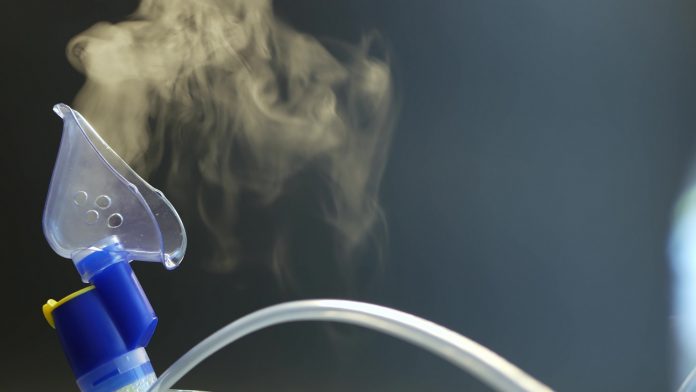With news reports indicating that exposure to the “mist from a nebuliser” was the likely reason behind the recent spike in Covid-19 cases in Melbourne, Senior Lecturer in Mechanical & Aerospace Engineering, Monash University, Dr Daniel Duke says, “right now we don’t have clear scientific evidence that nebulisers can increase the spread of Covid-19 specifically”.
However, while nebulisers may not necessarily increase the spread of Covid-19 per se – many viruses are capable of spreading by aerosol transmission, according to Dr Duke – there is still “a real cause for concern”.
“The best available science tells us that like many viruses, SARS-CoV-2 is capable of spreading by aerosol transmission,” says Dr Duke.
“Aerosols are liquid droplets that are too small to see – we naturally produce a tiny amount every time we breathe out.
“Unlike the big droplets that you can see when someone coughs, aerosols can remain suspended in the air for quite some time after they’ve been exhaled. That’s why social distancing and good ventilation are so important.”
Dr Duke explains that because nebulisers are “purposefully designed to produce thousands of times more aerosol than normal breathing” they potentially increase the risk of virus spread.
“A substantial portion of that aerosol has been in contact with a person’s upper airway. If they happen to be shedding a lot of virus at the time of use, there might be an increased risk of aerosol spread,” says Dr Duke.
“Nebulisers are used extensively in hospitals and the risk in those settings is carefully managed.
“The same cannot be said for other environments like hotels.”
Clear scientific evidence needed
While this is concerning, Dr Duke adds that he “must emphasise that right now we don’t have clear scientific evidence that nebulisers can increase the spread of Covid-19 specifically”.
“This is a question for epidemiologists to look into. However, from the best available science we do know that the more aerosol you exhale, the higher the risk of transmission,” says Dr Duke.
“Nebulisers increase that aerosol quantity significantly. This is a real cause for concern and more research is urgently needed.”
Critical patient advice
Dr Duke stresses that “if you use a nebuliser and you think you may have Covid-19 or are in isolation awaiting test results, speak with your GP right away”.
“You should never stop taking medication or change your medication without speaking with your doctor.
“If you use other kinds of inhaled medicines like asthma puffers, regardless of their type, they are safe and you should have no cause for concern,” he says.











